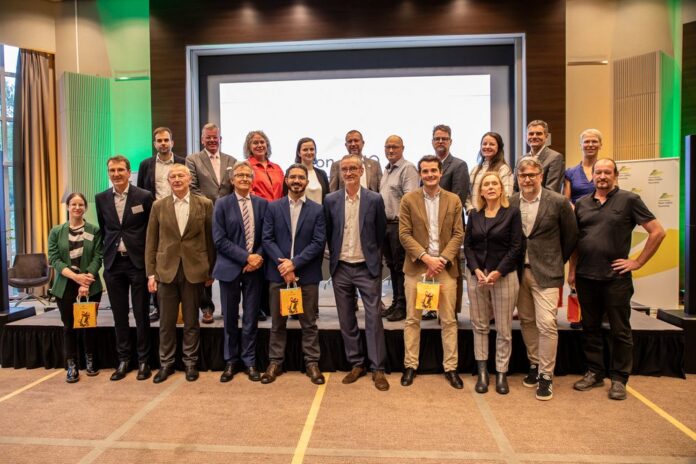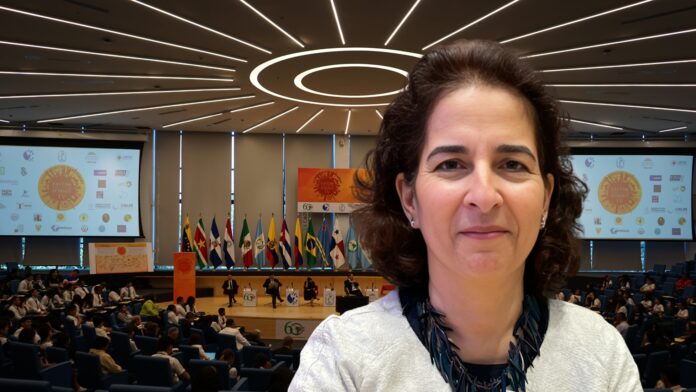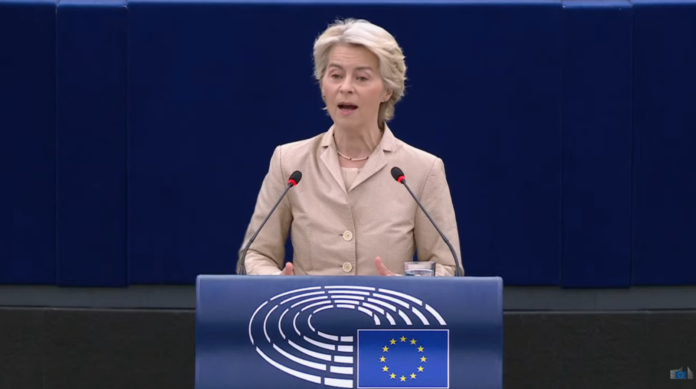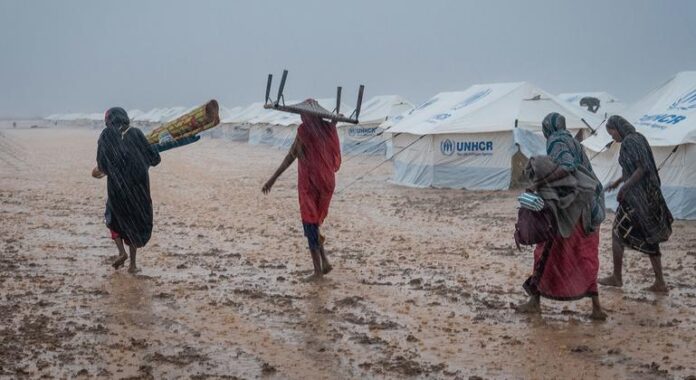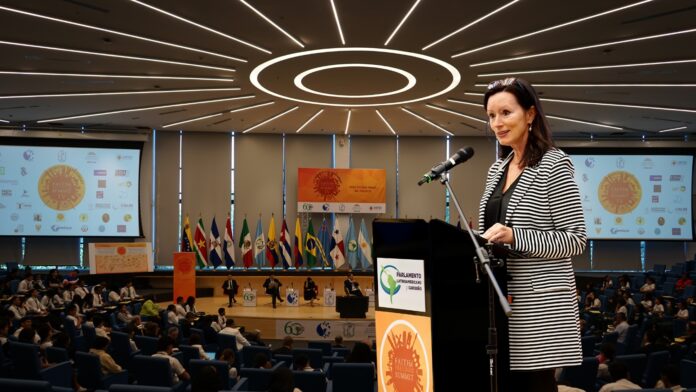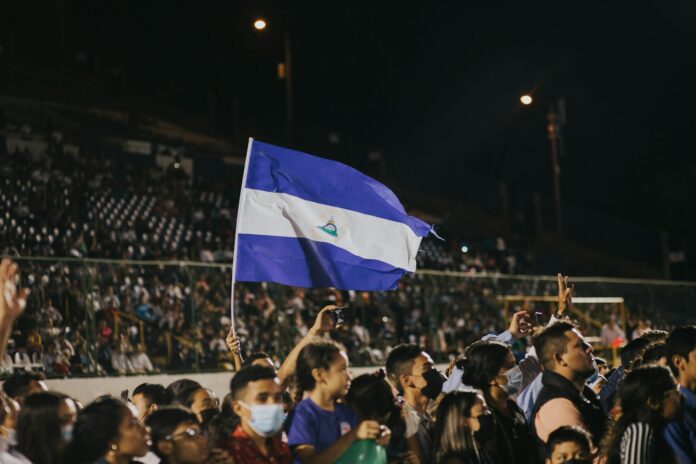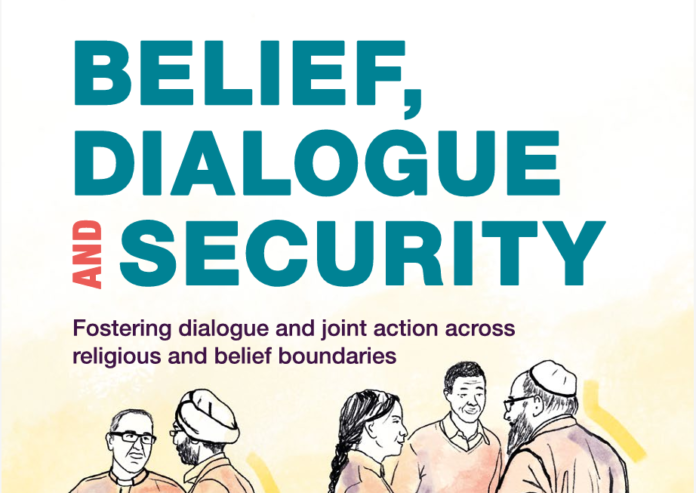Frankfurt/Main, More than 160 representatives from a thriving international Non-GMO industry and leading European associations from 23 countries and four continents met on 7th and 8th October 2024 at the ‘International Non-GMO Summit 2024’ in Frankfurt. Operators across the full Non-GMO value chain are united in battling the current challenges posed by the planned deregulation of New Genomic Techniques, as proposed by the EU Commission. The participants at the Summit gave a clear message for freedom of choice and transparency.
“The Non-GMO sector is here to stay!”
On behalf of the organisers, Alexander Hissting, Managing Director of VLOG emphasised: “Non-GMO markets are economically very successful and are thriving with strong support from consumers. We are ready and willing to face current political and market challenges.“ The organisers are convinced that NGTs should be strictly regulated, just like all other GMOs. Hissting’s clear message: “The Non-GMO sector is here to stay!”
High-level political support, advocating freedom of choice
The current Hungarian Presidency of the Council of the European Union and the German Federal Ministry of Food and Agriculture (BMEL) want to work towards a compromise in the revision of the EU‘s GMO legislation that ensures consistent labelling, coexistence and traceability in dealing with new genetic engineering techniques (NGTs). In his welcoming address, Dr. István Nagy, current President of the EU Council for Agriculture and Fisheries, stated: “I am convinced that the precautionary principle should be applied when new technologies are used and organisms produced with such techniques are released into the environment and the food chain. Furthermore, I consider it to be of the utmost importance to provide consumers with adequate information and to guarantee their freedom of choice.”
German State Secretary Silvia Bender criticised the European Commission’s draft regulation on NGTs, doubting that it sufficiently takes into account the interests of consumers, farmers and food processors: “The market for Non-GMO products has been growing for years and we want to preserve this added value. To do this, we need functioning coexistence measures, from seeds to consumer. Our goal is to find a compromise for a socially acceptable way of dealing with the new genetic engineering methods, and we are working on that,” Bender explained.
Call to strengthen critical voices in the EU: Keeping Europe GMO-free
Dietmar Vybiral from the Austrian Ministry of Health gave a detailed update on the current standstill with the negotiations around the planned revision of the EU’s GMO legislation. He explained that as Ministers at the EU Council could not yet agree on a “general approach”, trilogue negotiations between the three main EU institutions cannot start. Mr Vybiral called on those at the Summit to: “strengthen the critical voices in their respective governments to vote against a deregulation of NGTs.” He continued: “Austria has always stated that NGTs must be regulated as GMOs. Therefore, all NGTs products must have a proper risk assessment, must be labelled and have traceability assured – only this can ensure consumers’ knowledge and freedom of choice.”
The coordinator of the European DARWIN project, Odd-Gunnar Wikmark from the Norwegian research institute NORCE, reported on future-oriented research into reliable detection methods for NGTs. “It will be possible to develop detection methods for known varieties of NGTs. And we are confident that in time also untargeted detection methods will be developed.”
Hans-Peter Dejakum, representative of the premium wafers and chocolate producer Loacker from South Tyrol, believes in the high value of excluding GMOs from the company’s supply chains: “We are tracking consumer wishes in around 70 countries and we know that our customers truly want our Non-GMO products. In the last decade we have substantially invested to build up a credible Non-GMO value chain and we definitely want to continue this way.” Loacker exports its product with Non-GMO label to more than 100 countries worldwide.
Good availability of soy, rapeseed and corn – but even more potential
International experts in the field of raw material production and agricultural trade agreed that the most important regions for non-GMO commodities (especially soy, corn, rapeseed) currently have good market coverage – in Latin America (especially Brazil) as well as in Europe (especially Ukraine). There are also sufficient growth opportunities to further increase the availability of GMO-free feed and thus keep pace with rising demand. The supply of GMO-free goods is secured for this year and the next, explained Bertalan Kruppa, Donau Soja, Maxime Montserrat, Bunge and Daniele Marcomin, Agribusiness di Covolato in their presentations on the current situation on the international markets.
“Keep calm and carry on!”
Heike Moldenhauer, Secretary General of ENGA, concluded the Summit on behalf of the organisers, with a clear call to the Non-GMO industry present “to keep calm and carry on”. The battle for the right to continue to produce without GMOs is far from over, Moldenhauer stated: Currently there are hardly any New GMOs on the global markets – none in the EU, just a handful in countries where New GMOs have a non-regulated status. Therefore, markets will not be flooded with New GMOs in the coming years – as a glance at the companies’ development pipelines shows.
In addition, the exploration of audit strategies and research on detection methods and improvements in traceability have picked up speed. Moldenhauer is confident that significant progress will be reached to exclude New GMOs from Non-GMO value chains
The International Non-GMO Summit was organised by the most important industry associations of the Non-GMO market: Verband Lebensmittel ohne Gentechnik
(VLOG), ARGE Gentechnik-frei, Donau Soja, European Non-GMO Industry Association (ENGA) and ProTerra Foundation.
The congress was supported by its major sponsors Caramuru, Foodchain ID, Köster Marine Proteins, Bunge.



